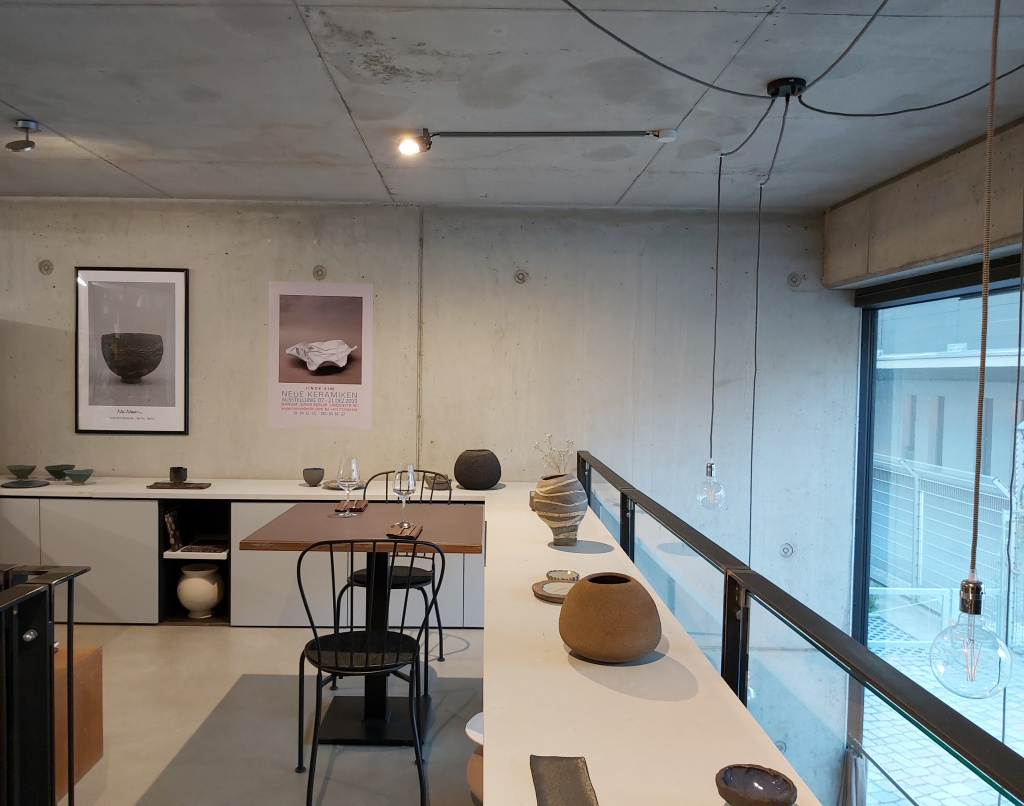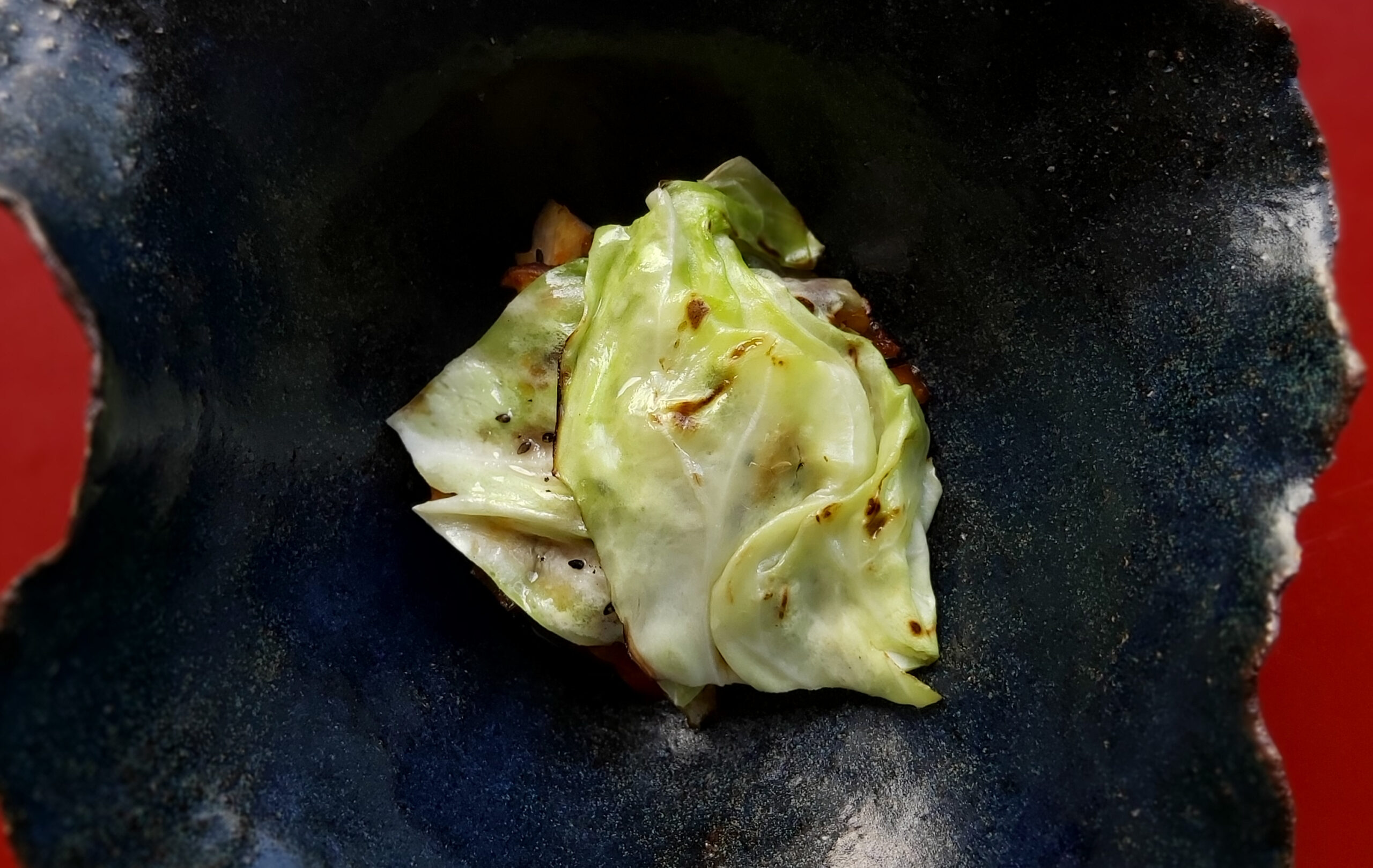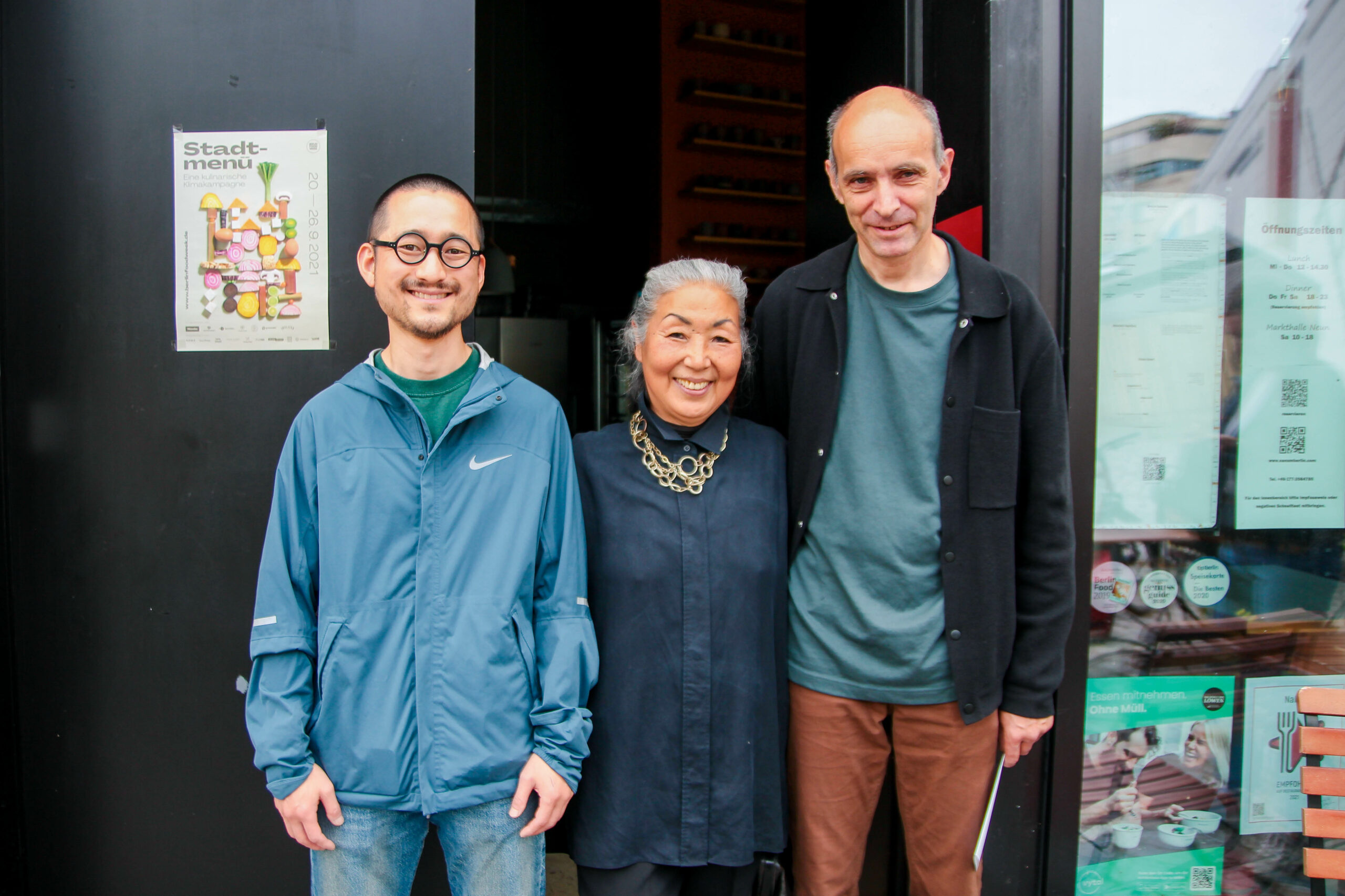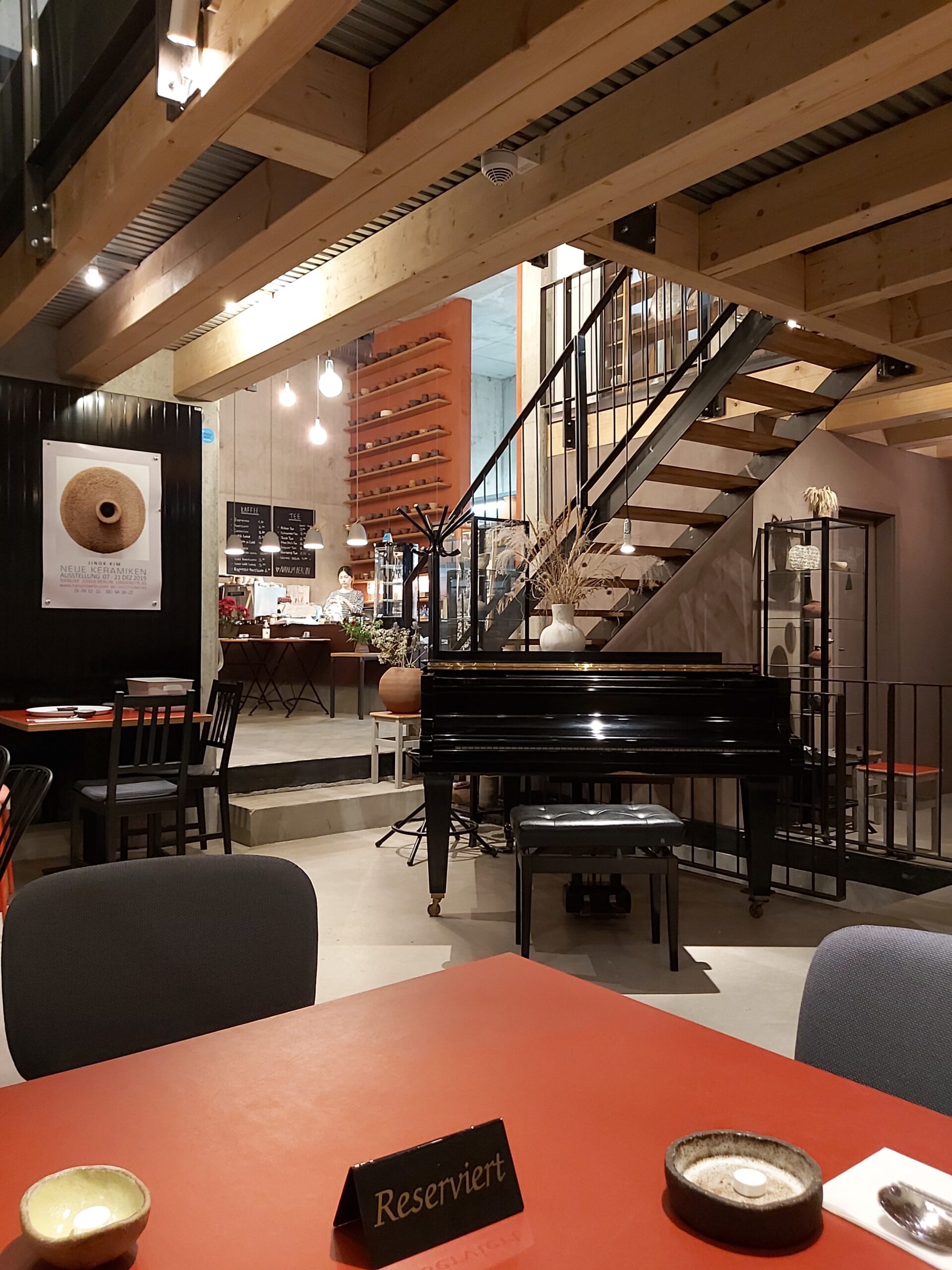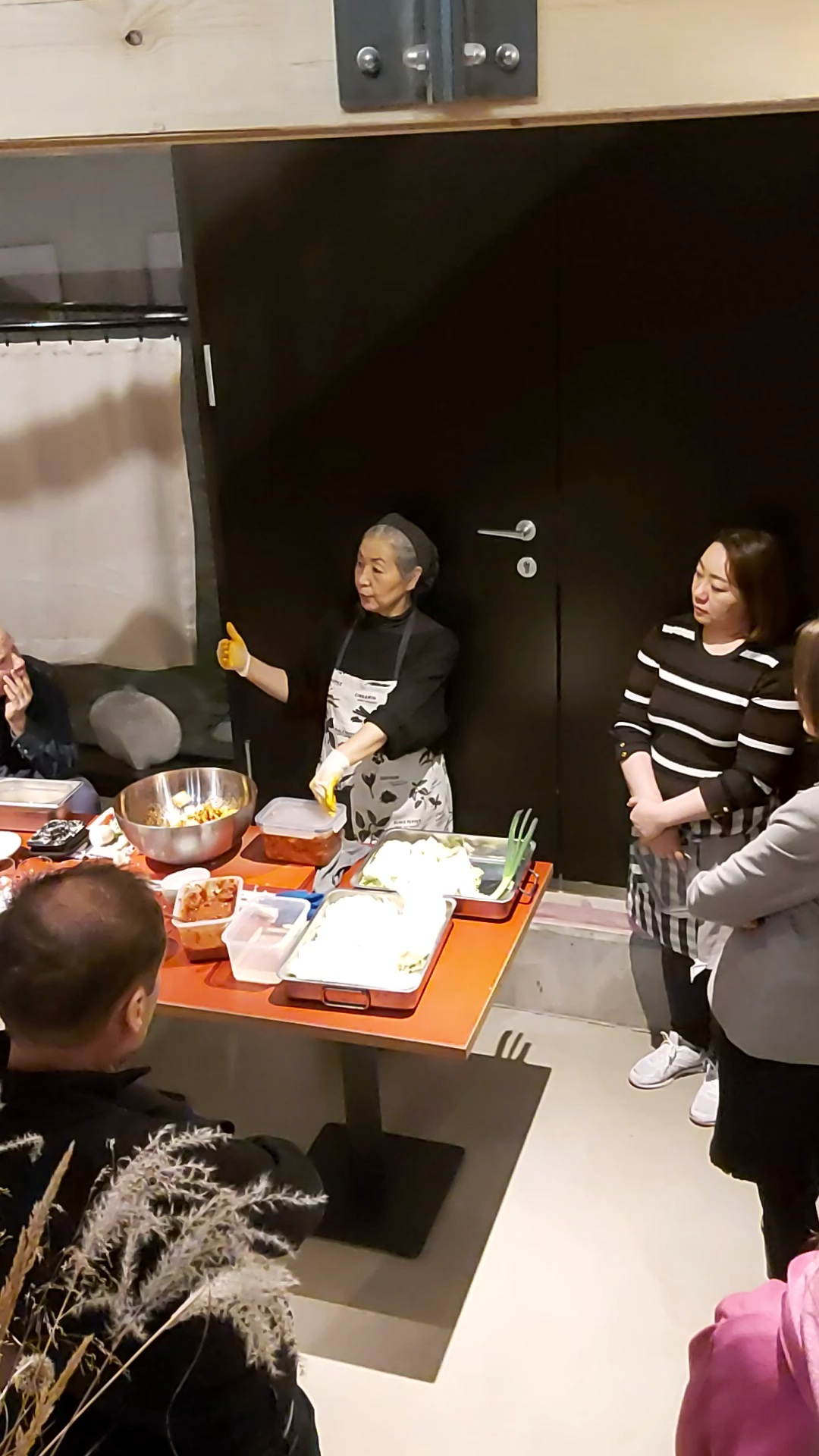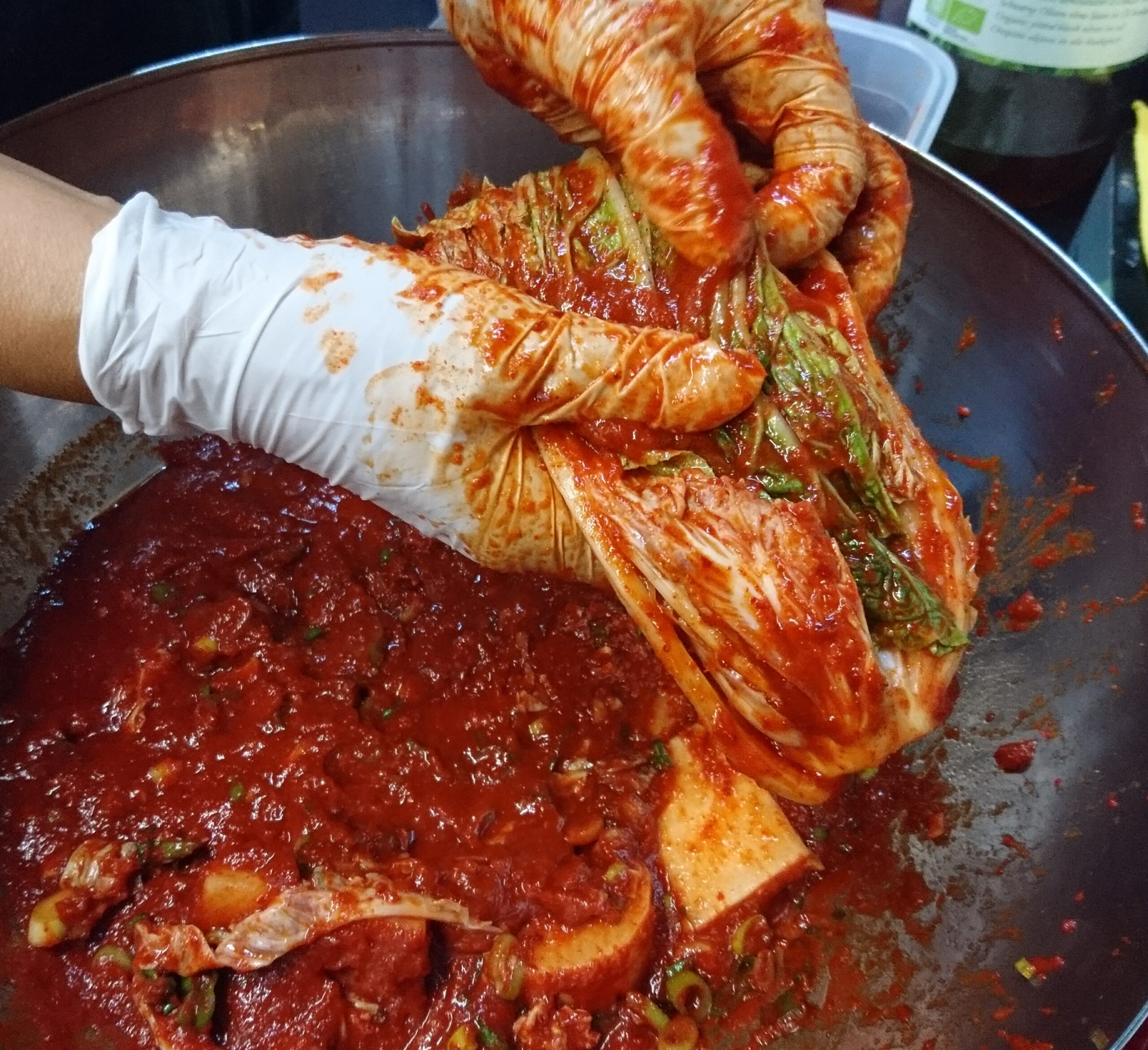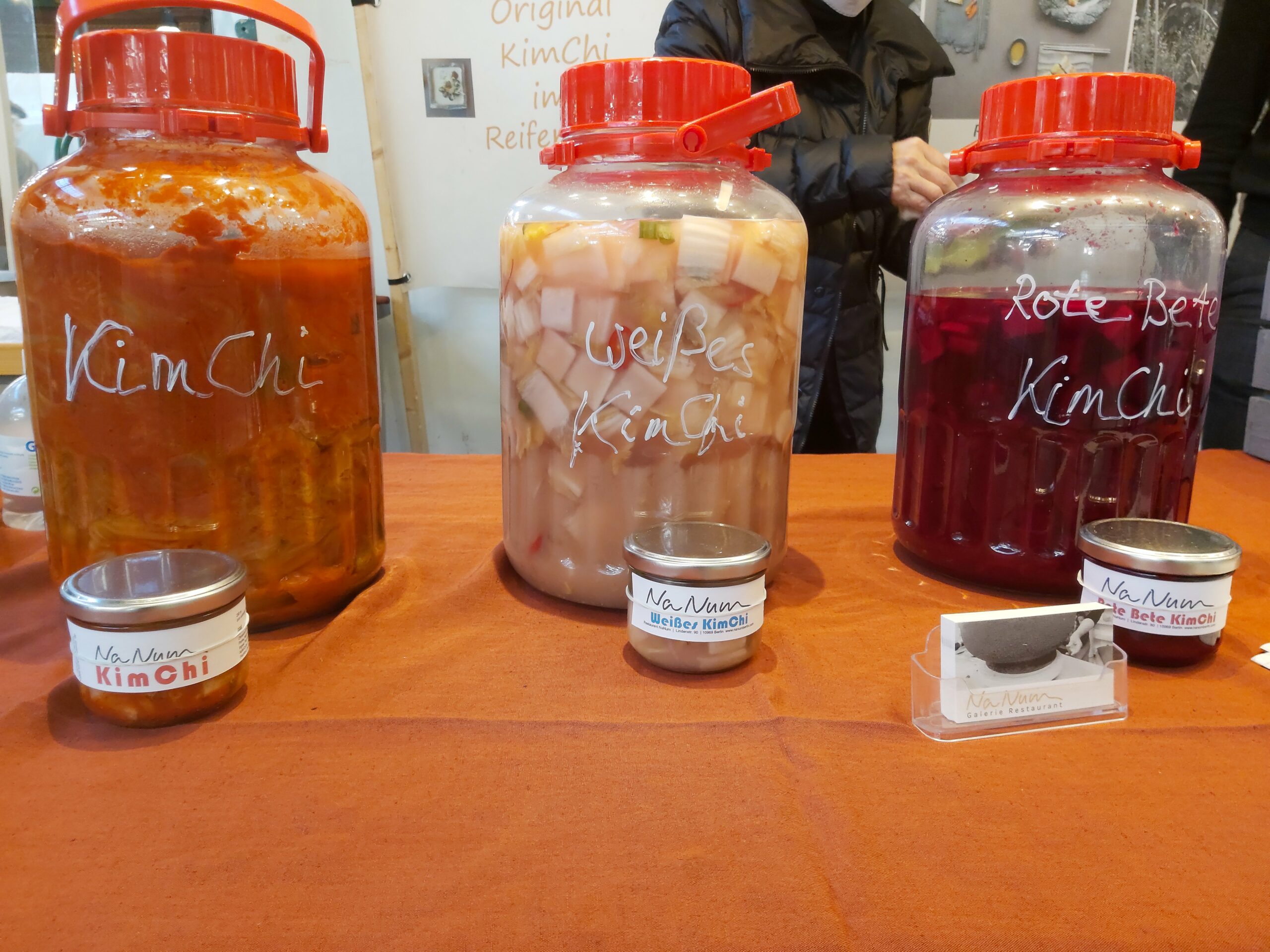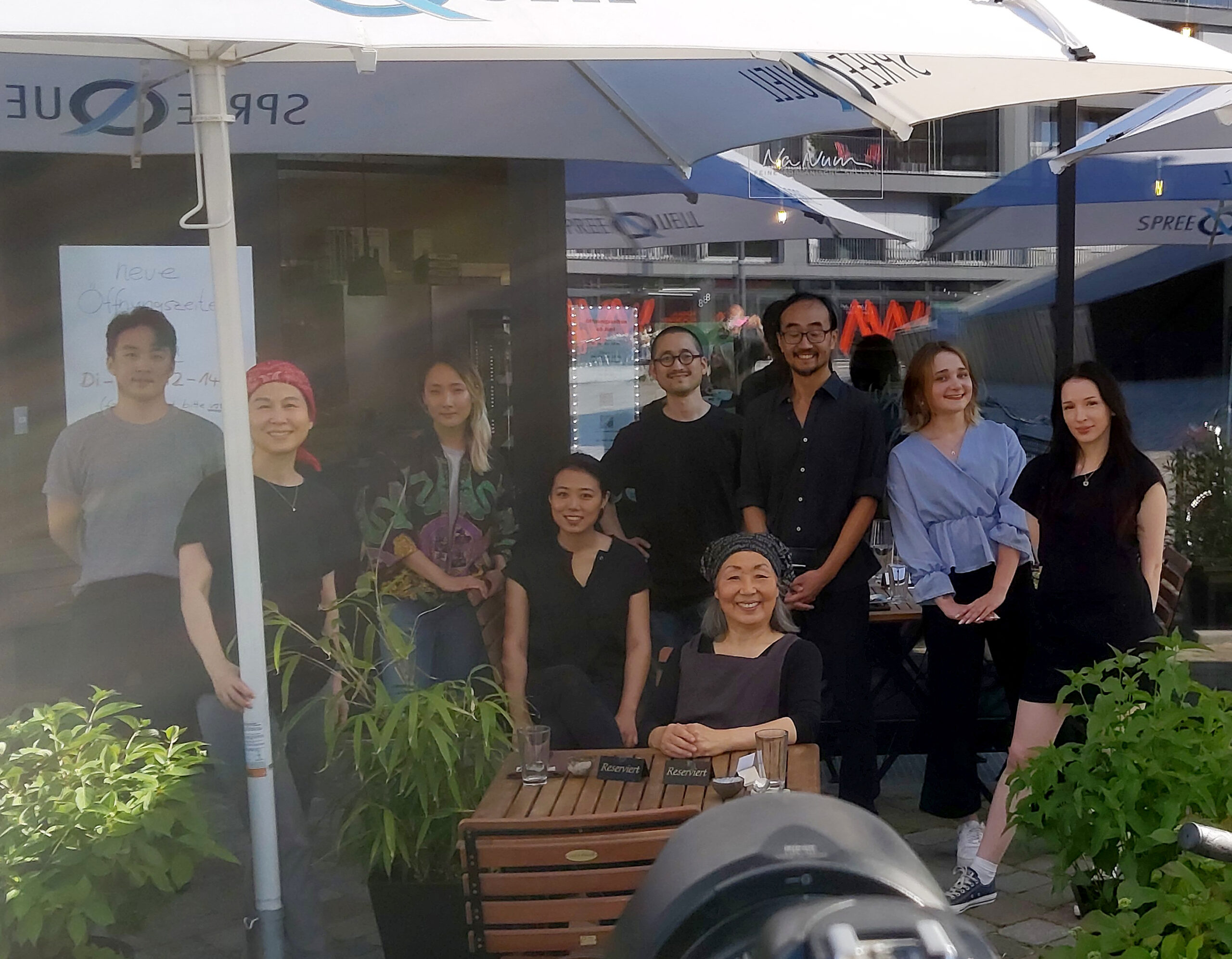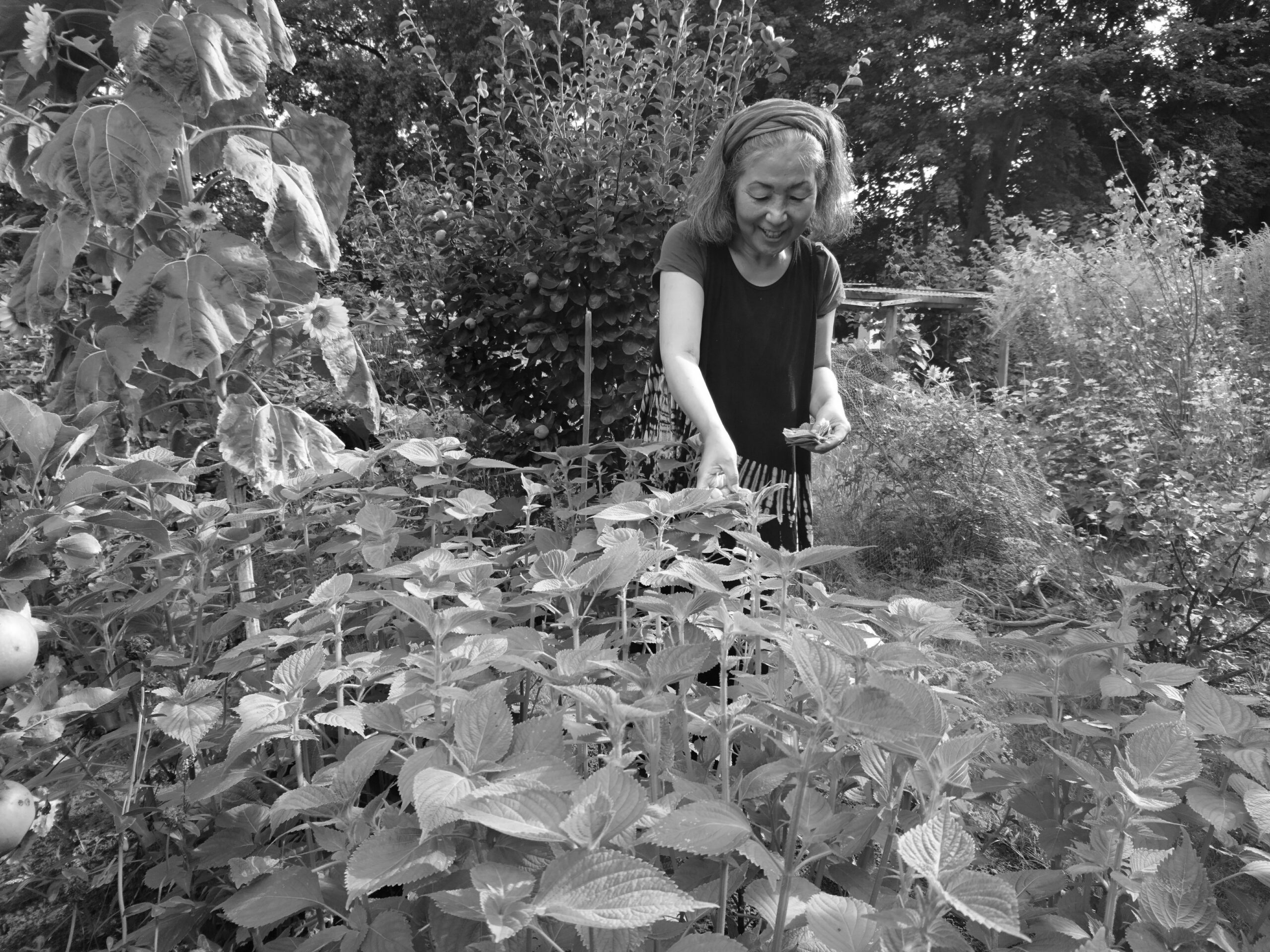NaNum
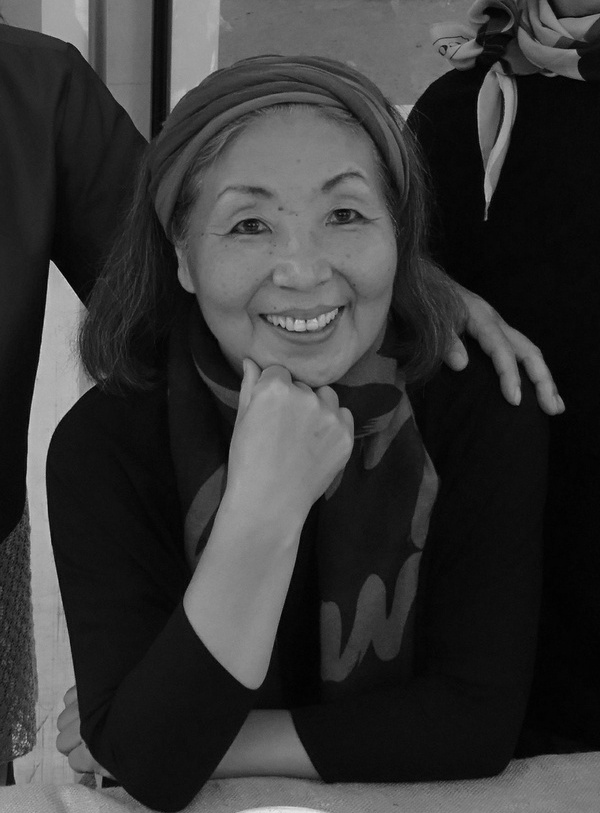
At restaurant NaNum in Berlin, Korean food is served on their own ceramics and accompanied by homemade ferments. We spoke to owner Jinok Kim-Eicken about food culture and the importance of creativity and spontaneity in her restaurant.
Dear Jinok, please introduce yourself briefly, who are you and what is the Nanum?
More than 40 years ago I came to Germany as a singer by invitation of the DAAD. I continued my studies in Berlin and then worked for many years as an alto, especially for baroque and modern music. 15 years ago I started to work with sound in parallel to clay and over the years I have developed my own formal language of European and Korean elements.
In 2018, together with my husband, I opened the gallery restaurant NaNum in the unusual construction project in Lindenstraße. There we serve multi-course menus on my ceramics, which focus revolves around the theme of ferments.
How exactly did you come to found the NaNum, what was your motivation?
The initial motivation was to give something back. I have experienced so many things here in Berlin and Europe, learned and been able to broaden my view; now it was time to say thank you and give something of myself. What I can give has become more and more apparent over time. The NaNum is the place where I try to give answers to current questions from my point of view – based on the artistic experiences, the experiences of my childhood and an old Korean tradition of food preparation.
What is special about your restaurant?
NaNum goes back to the origins and from there develops its own cuisine, which does not exclude fish and meat, but has a vegan focus with a lot of home-made ferments. We want to show how tasty, exciting and surprising such cuisine is.
You also have a garden. Can you tell us about it?
Well, the garden, and also the neighbouring forest, are the source and origin. Of course, not everything comes from our garden, but much of what we process into ferments does. Some things, like the wild sesame leaf, are rather unknown here in Berlin, and the weeds are also best brought from our own garden. But the garden is also a strong unifying element. It connects us with the seasons, it brings us into contact with the earth when we dig and dig in the soil, and every year it gives us the fascination of seeing something sprouting, growing, struggling for every drop of moisture and – sometimes better, sometimes worse – bearing fruit.
You are actually a singer. What working methods or “lessons” do you take with you from your previous working world into the food industry?
No matter whether I work as a singer or as a ceramist or as a cook, it is always a work with the body. Not for or against the body but with the body. That is a very important realisation for me. The body must be relaxed and in balance, it must not be forced into certain movements, certain sounds. They have to flow out naturally, completely naturally. Not forced. That is also my most important approach in the kitchen. Not forced, not forced or artificial. The food must be unagitated and natural. You must not be able to see the work that has gone into it. Only in the mouth should it reveal all its harmony and warmth.
„But the garden is also a strong unifying element. It connects us with the seasons, it brings us into contact with the earth when we dig and dig in the soil, and every year it gives us the fascination of seeing something sprouting, growing, struggling for every drop of moisture and – sometimes better, sometimes worse – bearing fruit.“
Besides the restaurant, NaNum is also a space for ceramics and music. Why is it important to you to combine these things in one place?
It’s a truism that everything is connected to everything else. For me, the interconnectedness is not having control over the processes. Creative processes cannot be predetermined. They only emerge when you have the confidence that nothing can go wrong. It’s a realisation that should actually apply to all of our lives. Our world is far too fear-driven, we want to keep everything under control, and in doing so we destroy so much. In ceramics, the naturalness of movement, the unforced and the unpredictable is expressed. My menus are created from the same attitude. So they come together to the guest and tell their story of trust and openness.
You mainly cook Korean cuisine. What do you particularly appreciate about this food culture and what would you like to see more of in Berlin’s food culture?
In conventional European cuisine, vegetable fermentations are almost always associated with the idea of sour pickles. Be it sauerkraut or various pickles. The original Korean cuisine, not the one we generally perceive as Korean, is much more developed in the handling of ferments. And shows us completely different taste experiences. The three main ferments alone, soy sauce, Gochujang and Doinjang, which are found in almost all dishes, offer an incredible richness of flavour. Then there is KimChi and the whole cosmos of Zangazi, which are all kinds of pickled herbs, roots, leaves, fruits or flowers. The future of our food culture lies in this wealth of plant fermentation. Fermentations are processes where the chef takes a step back and lets the food be what it wants to be, where he gives up control. The result does not have to be exactly the same every time.
By the way, I see something comparable in the production of natural wine. There, too, no additives are used to always get the same product, but the winemaker lets the grapes do what they do. You can taste that, and it is very related to Korean ferments. That is why we are so fascinated by the combination of our dishes with natural wine.
„Creative processes cannot be predetermined. They only emerge when you have the confidence that nothing can go wrong. It’s a realisation that should actually apply to all of our lives. {…} My menus are created from the same attitude. So they come together to the guest and tell their story of trust and openness.“
You are known for your KimChi, how important is that for you and your dishes?
Well, KimChi is always part of Korean food. And it’s one of the most powerful superfoods because of its enormously strong lactic acid, many times more than the lactic acid in yoghurt, so it reaches into the stomach and intestines.
However, I also see that KimChi is becoming more and more industrialised and the understanding of the essentials is being lost. And I see that many people in Germany still don’t really understand KimChi, perhaps because people think too much of sauerkraut when they think about KimChi. That’s why I’ve been focusing more on it, to show what makes KimChi so special. And to show how varied KimChi can be. And by the way: making KimChi is a ritual, you have to do it regularly, with dedication and attention, it changes as you make it and gradually gets better and better. My KimChi is also changing.
Why did you become a member of Die Gemeinschaft?
That’s easy to say. Changing the food culture is soo important. Especially here in Germany, food is valued far too little. Eating has a different, much more complex meaning than being satiated. We have to work together to achieve this.
Where do you see potential in the cooperation between gastronomy – agriculture – food crafts and other disciplines?
Of course there is still plenty of potential. This not only costs money but also requires a lot of time from the restaurateur. And that’s why we see the most potential in inspiring guests for a valuable and soulful meal, so that they understand and are willing to spend more money on their food. There has to be a redistribution in people’s minds.
Thank you for the Interview and your time!
